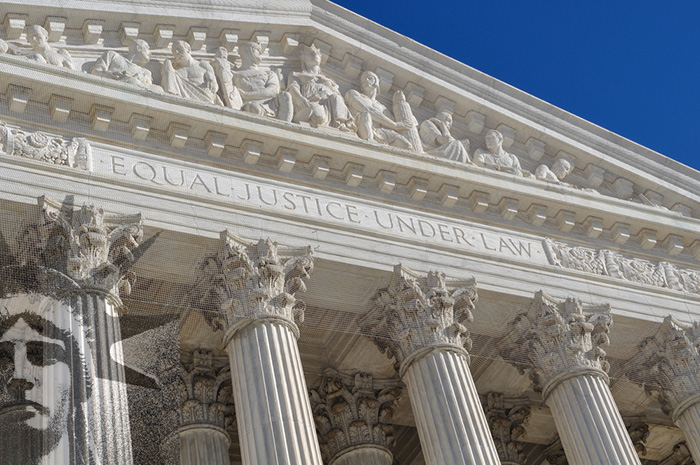
[dc]T[/dc]he Supreme Court has agreed to hear a same-sex wedding cake case in the next term and is considering whether to grant certiorari in a similar case involving a florist. The Court may decide that the facts are similar enough to consolidate the cases.
In Masterpiece Cakeshop, Ltd. v. Colorado Civil Rights Commission (Docket No. 16-111), the issue is framed:
“Whether applying Colorado’s public accommodations law to compel the petitioner to create expression that violates his sincerely held religious beliefs about marriage violates the free speech or free exercise clauses of the First Amendment.”
If it decides to hear Arlene’s Flowers, Inc. v. Washington (Docket No. 17-108), the Court would address these issues:
“(1) Whether the creation and sale of custom floral arrangements to celebrate a wedding ceremony is artistic expression, and, if so, whether compelling their creation violates the free speech clause; and (2) whether the compelled creation and sale of custom floral arrangements to celebrate a wedding and attendance of that wedding against one’s religious beliefs violates the free exercise clause.”
The issues are framed in the questions presented are written by the petitioners. In general, both cases address the issue of whether business owners who have religious objection to participation in same-sex wedding ceremonies can assert an exemption from performing the services under the free speech and/or free exercise clauses of the First Amendment of the U.S. Constitution. The flower case adds the “attendance” issue because the florist presumably has to attend the ceremony which could apply to the cake case as well.
On August 15, 2017, the Cato Institute filed a brief on behalf of Arlene’s Flowers requesting that the Court consolidate the two cases. There are nuances about the degree of artistic expression is present in decorating a cake versus arranging flowers, and the Court may decide to hear both together and still render two decisions. The Court took a similar approach when it addressed Ten Commandment monument cases in Texas and Kentucky and issued separate opinions with opposite results in Van Orden v. Perry, 545 U.S. 677 (2005) and McCreary County v. American Civil Liberties Union, 545 U.S. 844 (2005).
As there are good reasons for public accommodations laws as well as constitutional protections of free speech and free exercise of religion, the Court will be balancing these interests. The Court could decide that non-discriminatory business accommodation of same-sex couples is more important than the free speech and free exercise rights of business owners, or that sincerely-held religious beliefs permit exceptions from discrimination laws. The latter, of course, could present issues when dealing with other forms of discrimination including religious, racial, etc. if a business owner could assert a sincerely religious rationale for the discrimination.
We will be watching these cases develop over the next term.